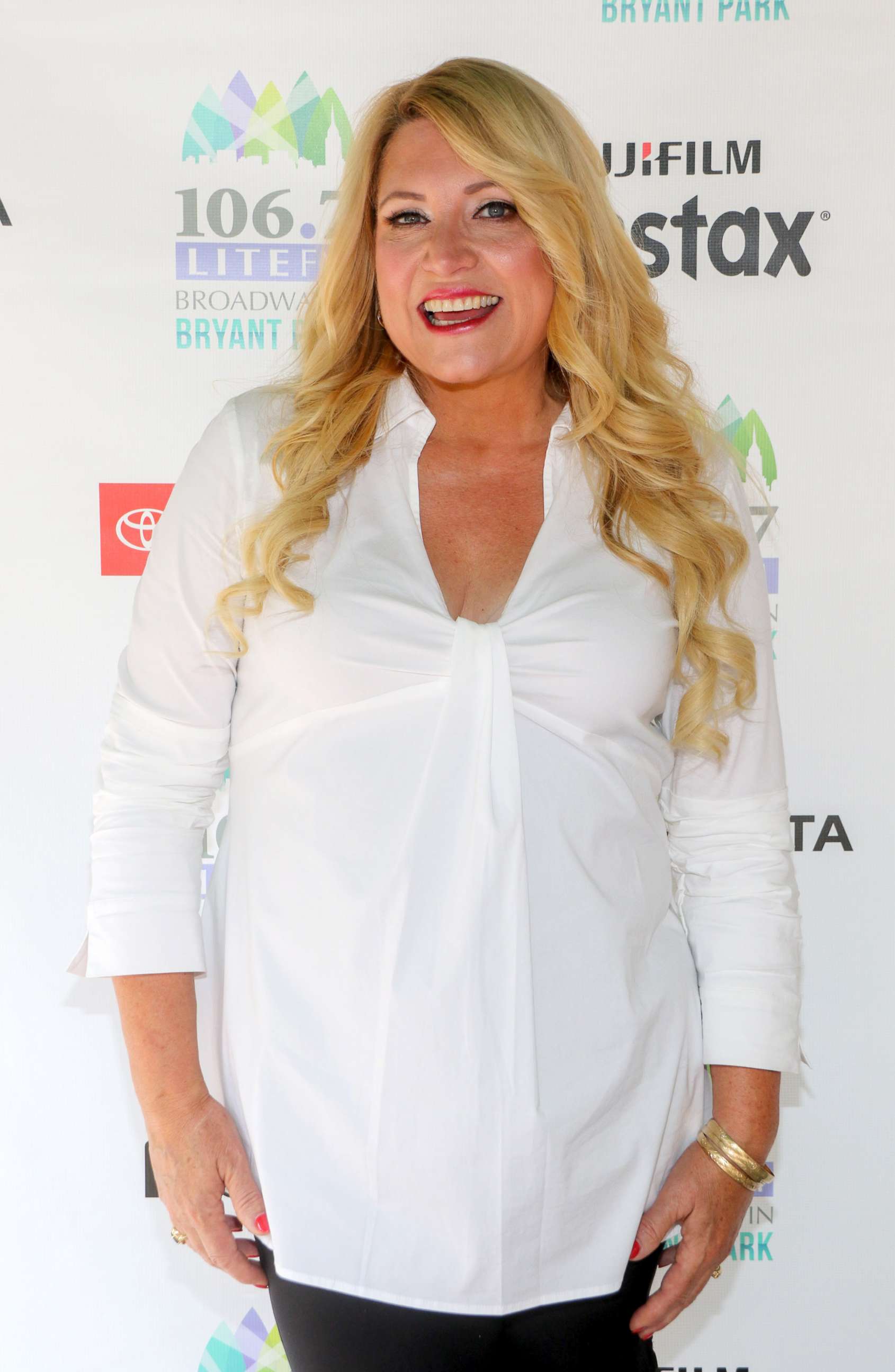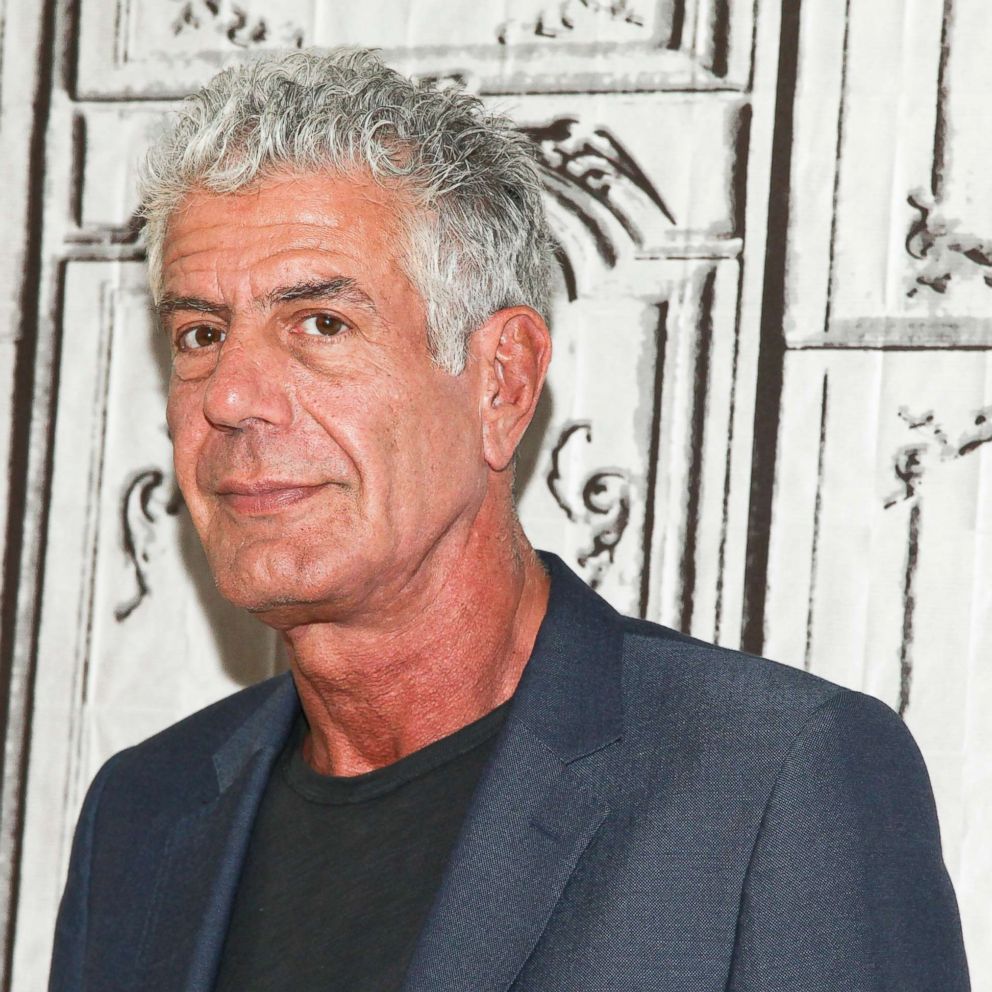Radio icon Delilah speaks out about her son's suicide
Plus, "GMA" got an excerpt from her new memoir "One Heart at a Time."
Delilah, the radio icon whose signature smooth voice lulls her eight million listeners each week, opened up about her new book that deals with her son's suicide, saying for a while it was something: "I couldn't write."
"I couldn't write, I couldn't talk about it," Delilah said of her 18-year-old son's October 2017 suicide.
The on-air confidant for millions, who consistently offers candid advice about love and relationships, said she took a rare break from her show after the tragedy to focus on a new mission with her book "One Heart at a Time."
"The publishers ... talked to my sister," about her writer's block, she said. "And she said, 'I'll help. You know, I'll step in and help,' and I'm like, 'Oh, no, no, no, no. Nobody's telling Zack's story but me.'"
She said that this eventually gave her "the energy" to write her book.
"I do want parents to know," she added, "We need to talk about teenage suicide."
"And we need to start having open conversations as painful as they are," she said. "Because it's epidemic."
Still, Delilah said she "would not be standing if it weren't for the prayers of my friends, my family, and my listeners."
"It's so funny because nights are the worst. You know, I finish the show," she said. "And that's when it hits. Because that was our time together. My son was a night owl."
She added that "so many listeners sent the most beautiful thoughts and prayers" and "shared their own stories of loss ... and grief, and what helped them get through."
"It's been hard," she admitted, but still maintains: "I can still say, 'I'm the most blessed woman I know.'"
Delilah's book, "One Heart at a Time," hits bookstores nationwide today.

Excerpt from 'One Heart at a Time' by Delilah
My name is Delilah. I have had a lot of last names, and I have a lot of nicknames, but most people just know me as Delilah. You may recognize the name from my nighttime syndicated radio show where I take calls and emails from listeners and help them work out their is- sues. That would make sense, as I’ve been on the air more than forty years.
Playing your song requests and dispensing three-minute snippets of advice on my radio show is just a small part of my day. I also founded a nonprofit organization called Point Hope to help others in need. In the past fourteen years I’ve been back and forth to Ghana, West Africa, over thirty times, at least twice a year, helping refugees, the elderly, disabled, and vulnerable local population gain access to things we take for granted, like food, clean water, and health care. I’ve got thirteen kids, young children to adults, ten of whom are adopted. I’ve got grandkids to love on, farm animals to care for, and acres and acres of gardens to tend to. I’ll admit, sometimes I grapple with my own on-air advice to “slow down and love someone.”
It is true, though. All of us need to slow down and step into another pair of shoes—perhaps the shoes of a person we disagree with. We need more love and understanding right now. People are being divided and pitted against one another. Images of rioting and unrest fill our TVs and computer screens, and we no longer bat an eye when they do, which is a whole other problem unto itself.
“A house divided will not long stand.” We are a house divided. We are fighting against our brothers and sisters. Instead of building bridges of understanding, we are building walls of division.
Never before in the history of our world have we needed love more than we do today. We have amazing technology that allows us to connect to each other in an instant, and yet people are more lonely and isolated than ever before—which also makes it easier to engage in the vitriolic discourse that divides us further. It’s easier to en- gage in mean-spirited warfare when you can hide behind an online profile.The growth of the overall disconnectedness or abject loneliness of people during the last two decades has taken on a life of its own. I hear it from callers all the time. Older folks who miss their adult children or grandchildren. I hear it from young people who feel like they don’t have any friends at their school or anyone they can trust. I hear it from young, exhausted single moms trying to make it on their own, and from married men and women who feel completely isolated from their spouses. Almost every person I’ve talked to who ever attempted suicide (and I talk to hundreds of these survivors each year) says the same thing: they felt utterly and completely alone, unable to bear the weight of the sadness from their depression and isolation.
When I travel to developing nations and see small, unfurnished huts, maybe twelve feet in diameter, that are home to half a dozen people, or see houses where families have lived in the same neighborhood for generations, I suspect they are not nearly as lonely as we are in our modern, developed culture.
Our world is in trouble on so many fronts, and it’s hard to be up against forces so enormous and powerful when you are one person, one heart, trying to effect change. Sometimes I feel like a tiny mouse facing down a rhinoceros.
So how do we change the world? The answer: one heart at a time. I’ll start by sharing my heart with you.
By sharing my personal stories and what I’ve learned in my experiences, the positive and the negative, my hope is you’ll start to see the miracles in your life, recognize divine promptings, consider your purpose, follow with prayerful obedience, open yourself to serve others, and let go of things that burden you—all so you may find peace in this harsh existence.
When your life comes into harmony with the Lord’s plan for you, and people around you start to notice the change, guess what? They’ll want to know what you know. So you’ll share your stories, too, soften hearts, open eyes, and change the world with me, one heart at a time.
This excerpt is adapted from "One Heart at a Time" by Delilah and is printed with permission from RosettaBooks. If you are in crisis, please call the National Suicide Prevention Lifeline at 1-800-273-TALK (8255) or contact the Crisis Text Line by texting TALK to 741-741.






